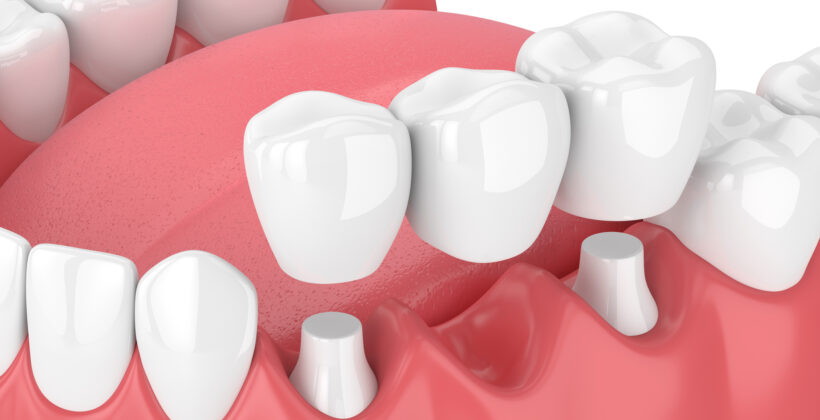What type of dental bridge is the best?
Between the ages of 20 and 64, the average adult has three or more decayed or missing teeth. Missing teeth can affect the way a person communicates and functions in daily life.
Dental bridges are a common and effective tooth replacement option. All bridges are custom-made for every patient to resemble the look, shape, and function of natural teeth.
At Dental Care of Lombard, we offer two types of dental bridges: traditional and implant-supported. Continue reading to learn which option is best for your smile.
Traditional
Traditional fixed bridges are the most common. They consist of two parts:
- Two crowns, which anchor the bridge and keep it in place.
- One to three pontics, which are the centerpieces between two crowns (the filler teeth)
Most dental bridges are constructed of porcelain that is attached to a metal structure for support. Traditional bridges are typically used to restore the posterior teeth.
Dentists typically install traditional bridges in two appointments:
- The dentist preps the adjacent teeth by removing some of the enamel and places a temporary bridge while the final restoration is made in a dental lab.
- The dentist cements the dental bridge into place with a special bonding agent.
Implant-Supported
Implant-supported bridges are similar to traditional bridges, but they are held in place by implants instead of supported by the teeth. Implant-supported bridges require several stages of surgery:
- A bone graft, if the jawbone is inadequate
- Dental implant surgery
- An abutment is attached to connect the implant and the bridge
- The final prosthetic bridge is attached
Additionally, it takes about six to nine months to heal dental implants. The main benefit of implants is that they act as artificial tooth roots, which:
- Hold the teeth in place
- Help the bridge feel and function like natural teeth
- Stimulate the jaw to prevent bone atrophy
What type of dental bridge is best?
Traditional bridges and implant-supported bridges restore missing teeth while being durable and attractive. Both types of bridges have their advantages and disadvantages:
- Traditional Bridges enhance the appearance and function of the smile. Unfortunately, traditional bridges require alteration to adjacent teeth and lead to weakening and loss of jawbone tissue.
- Implant-supported bridges do not require any alteration to healthy teeth. Most importantly, implants act like natural tooth roots, which help preserve the jaw. However, implant-supported bridges require more treatments and have a much longer healing period to complete.
With a 95% success rate, dental implants are the closest to natural teeth. On the downside, implant-supported bridges are much harder to qualify for than traditional bridges. Here are some factors that may disqualify patients for dental implants:
- Tobacco use
- Advanced gum disease
- Radiation therapy
- Uncontrolled diabetes
- Young patients (whose jaws are still growing)
- Pregnancy
- Medical dependency on steroids and blood thinners
- Poor general health
Contact Us
If you suffer from adult tooth loss, both traditional and implant-supported bridges effectively restore the look and function of one or more teeth. Choosing between the two should be based on personal preference and overall wellness.
If you’re still unsure which bridge option is right for you, it’s best to have Dr. Glud look at your teeth and current state of health. Set up a consultation for bridges at Dental Care of Lombard by calling 630-629-5700 or messaging us online.

